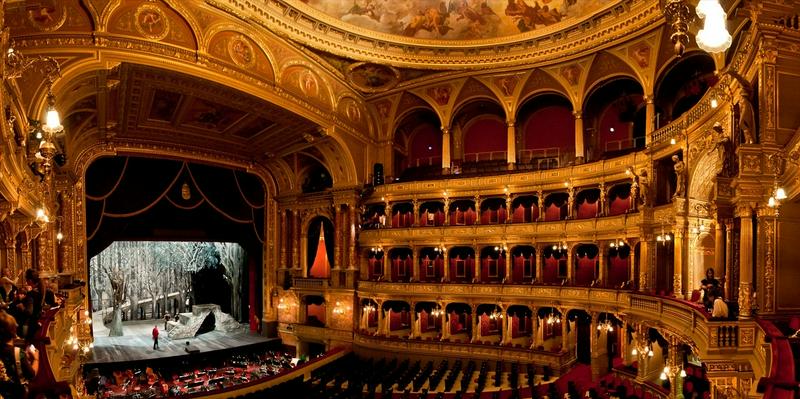Where Opera Originated From
By | August 8, 2019

Operas were put on by royalty as a way of showing off how wealthy they were. They used this form of entertainment to impress dignitaries especially when a celebration was in order such as a wedding. Themes were usually taken from Greek and Roman mythology and then music and dancing along with excessive costumes would be added to make it complete.
There were two types of opera, the formal dignified opera (opera seria) and comedies (opera buffa).

Some considered “Dafne” (1597) to be the very first opera, which was composed by Jacopo Peri, while others considered “Orfeo,” which was performed in 1607, composed by Monteverdi to be the first opera. The opera “Orfeo” came from a Greek myth about a musician named Orpheus who went to Hell to get his dead wife but then while there, through his music, subdues the demons. Both of these were performed in Italy.
“The Siege of Rhodes” was the first English opera and was performed in 1656 at the Rutland House and was also the first production that included the scenery. Legend has it that Davenant was William Shakespeare’s illegitimate son. Davenant and Thomas Killigrew gained a monopoly on the drama in London which they held until the 19th century. Davenant presented Shakespeare’s plays when he opened the Duke’s Theatre.

In the 1670s Henry Purcell, who was one of the best composers in that time, came out with an unusual form of opera that was half-sung and half-spoken. For this reason, more focus was on the costumes, scenery, music, and dancing; therefore, the lead actors were not required to do much singing. One of the most over-the-top semi-operas of Purcell’s was “The Fairy Queen” which was based on Shakespeare’s “A Midsummer Night’s Dream.” In 1946, a new opera company was established as the Sadler’s Wells Ballet and reopened the Royal Opera House after World War II with “The Fairy Queen.” Although there were talented dancers and actors, the audience was completely bored by it all.
The Baroque era, which was between 1600 and 1750, was a time when opera was quite a splendid and expensive form of entertainment. Georg Frideric Handel, a German who lived in London, was one of the greatest during this time period. In an attempt to make opera stars out of male singers, many of them were castrated as boys to give them “soprano” voices; however, only a few survived and became great singers.

Classical opera came next (1750-1830) with Wolfgang Amadeus Mozart. One of Mozart’s works was “The Marriage of Figaro” which was a comic opera about servants who outsmart their masters.
Then the Romantic operas came into play between 1830 and 1900. These operas were much longer and louder. The most popular opera during that time was known as Georges Bizet’s “Carmen” which was about a Gypsy woman with a free spirit and a soldier who is crazy for her.

More dramatic operas were done in the 19th century such as “La Traviata” which is about an attractive courtesan who fell fatally ill with tuberculosis. Giacomo Puccini was a 20th-century composer who wrote Italian grand operas such as “La Boheme,” “Tosca,” “Madama Butterfly,” and “Turandot.”
Many people still enjoy opera today particular in places like New York, London, and Paris.

